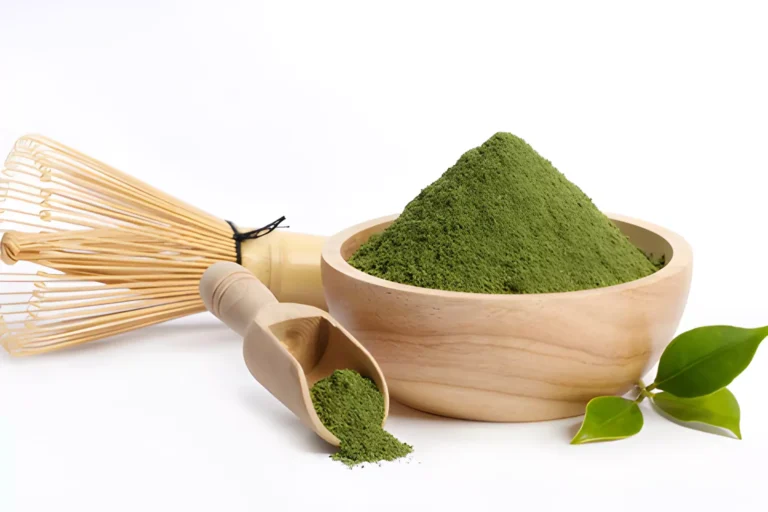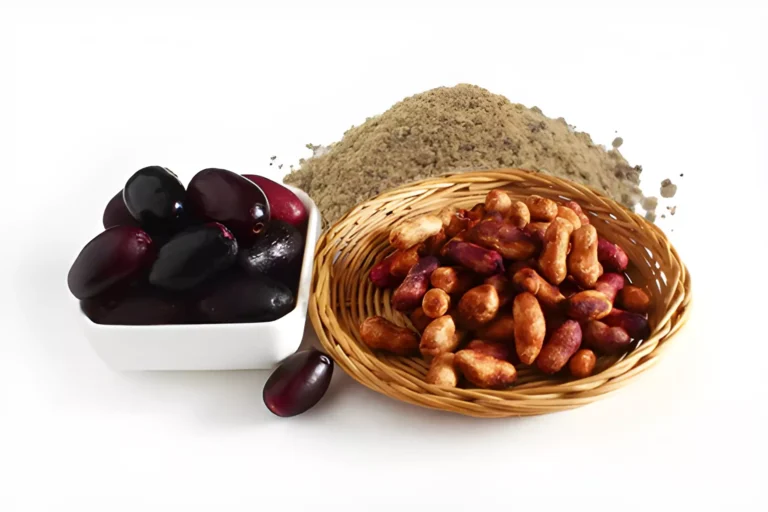Ashwagandha Powder vs Capsule: Which is Better?
Ashwagandha is a popular herb used for centuries in Ayurveda, the traditional medicine system of India. It is known for its many health benefits, such as reducing stress, improving mood, enhancing memory, boosting immunity, and more.
But how should you take ashwagandha? Should you choose the powder or the capsule form? Which one is more effective and convenient? This article will compare ashwagandha powder vs capsules and help you decide which is best.
What is Ashwagandha and How Does It Work?
Ashwagandha is a plant that belongs to the nightshade family. Its scientific name is Withania somnifera, also known as Indian ginseng. The part of the plant used for medicinal purposes is the root, which contains various bioactive compounds, such as withanolides and alkaloids.

These compounds are responsible for the adaptogenic effects of ashwagandha, which helps the body adapt to different types of stress. Ashwagandha works by modulating the activity of the hypothalamic-pituitary-adrenal (HPA) axis. It also influences neurotransmitters such as serotonin, dopamine, and GABA levels. This helps in mood regulation, cognition, and relaxation.
Ashwagandha Powder vs Capsule: What are the Differences?
Ashwagandha can be consumed in different forms, such as powder, capsule, liquid, or tea. The most common ones are the powder and the capsule forms, which have advantages and disadvantages. Here are some of the main differences between them:
Taste
One of the most common differences between ashwagandha powder and capsule is the taste. Ashwagandha powder has a bitter and earthy flavor, which can be unpleasant for some people. On the other hand, capsules are tasteless and odorless, making them easier to swallow.
However, some people may prefer the natural taste of ashwagandha powder, as it gives them a sense of authenticity and connection with the herb. Moreover, some may find that the taste of ashwagandha powder enhances the herb’s effects, as it stimulates the salivary glands and the digestive system.
Convenience
Another difference between ashwagandha powder vs capsule is the convenience factor. Capsules are more convenient as they require no preparation, measuring, or mixing. You can pop a capsule with water or food, and you’re good to go. Powder, however, requires some effort and time to prepare.
You need to measure the right amount of powder, which can vary depending on the potency and the quality. Mix the powder with water, juice, milk, or smoothie, or add it to your food, such as soups, stews, or oatmeal. Some people may find this process messy, while others may enjoy it as a daily ritual.
Dosage
Another difference between ashwagandha powder and capsule is the dosage. Capsules provide a pre-determined ashwagandha extract dosage, ranging from 300 mg to 600 mg per capsule, depending on the brand and the concentration. This makes it easier to follow the recommended dosage and avoid overdosing.
Powder, on the other hand, can be tricky to dose, as it depends on the weight, potency, and product quality. The general recommendation is to take 3 to 6 grams of ashwagandha powder daily, divided into two or three doses. However, this may vary depending on the individual’s needs, preferences, and tolerance.
Effectiveness
Another difference between ashwagandha powder and capsule is its effectiveness. Both forms of ashwagandha can provide the same benefits, such as reducing stress, improving mood, enhancing memory, boosting immunity, and more. However, some factors may affect the herb’s absorption and bioavailability.
Generally speaking, ashwagandha extracts are more potent and bioavailable than ashwagandha powder. This is because they contain a higher concentration of withanolides.
However, some people may prefer the whole root powder because it contains the full spectrum of the plant’s constituents. Moreover, some people may respond better to one form or the other. All these depend on their genetic makeup and their gut health.
How to Choose the Best Ashwagandha Powder or Capsule for You?
As you can see, there is no definitive answer to which is better: ashwagandha powder or capsule. Both forms have pros and cons, ultimately coming down to your preferences and individual needs.
However, there are some factors that you should consider when choosing the ashwagandha capsule or powder, such as:
Quality
The quality of the ashwagandha product is crucial for its effectiveness and safety. You should look for products made from organic, non-GMO, and pesticide-free ashwagandha roots that third-party labs test for purity, potency, and contaminants.
You should also check the label for the number of withanolides, the main active compounds of ashwagandha. The higher the percentage of withanolides, the more potent the product. A good quality ashwagandha product should contain at least 2.5% to 10% of withanolides.
Formulation
The formulation of the ashwagandha product is also important for its absorption and bioavailability. You should look for products formulated with black pepper extract, which enhances the absorption of ashwagandha by inhibiting the enzyme that breaks it down in the liver.
You should also avoid products that contain unnecessary fillers, binders, or additives, which may reduce the quality and effectiveness of the product.
Conclusion
Ashwagandha is a powerful herb that can provide many health benefits, such as reducing stress, improving mood, enhancing memory, boosting immunity, and more. However, how you take ashwagandha can make a difference in its effectiveness. You can choose between ashwagandha powder or capsule, depending on your preference. You should also consider the quality, the formulation, and the price of the product.
Whichever form you choose, take ashwagandha regularly and consistently, and follow the recommended dosage and precautions to get the most out of this fantastic herb.




